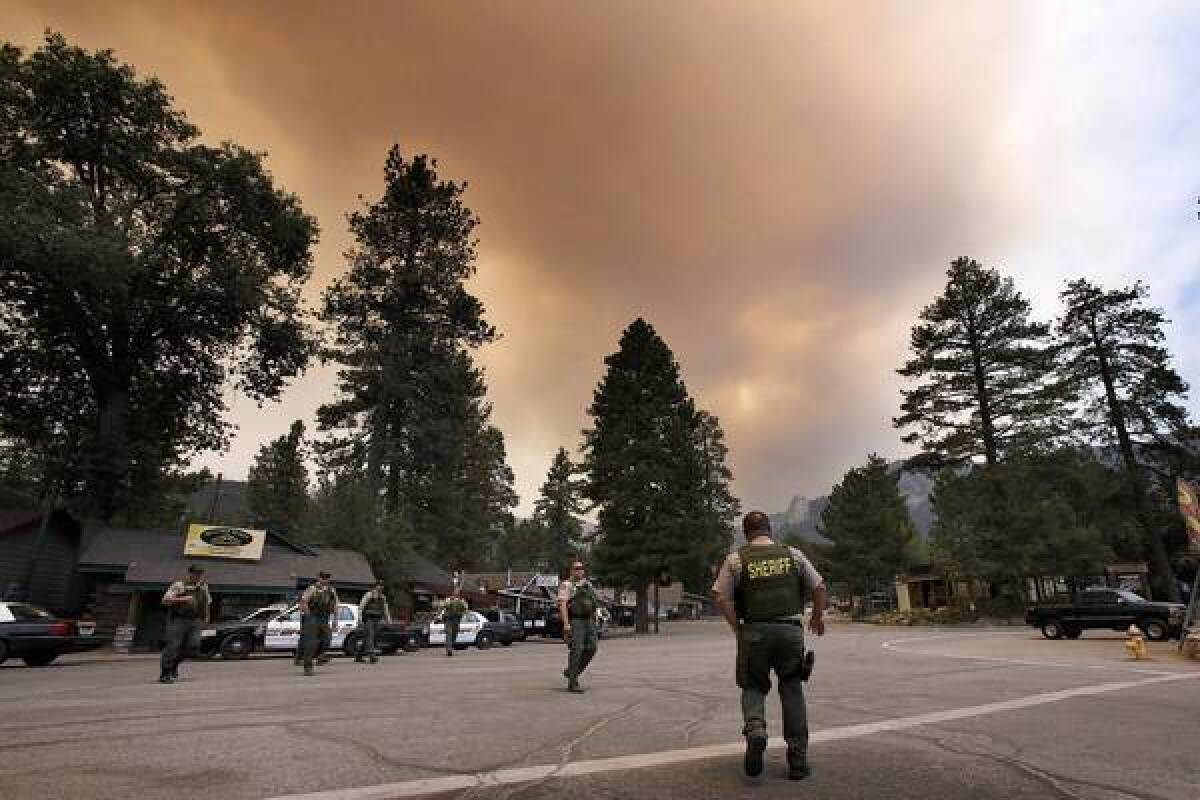How a $30-million federal lawsuit was blown up over breakfast

- Share via
It was a friendly morning meal at the Mission Inn to make sure there were no hard feelings after years of litigation.
Attorney Jim Lance was eating with Lawrence Goda and his wife, who had just agreed to be part of a nearly $5-million settlement against Lance’s Saudi client, businessman Tarek Al-Shawaf.
As the pair engaged in small talk and broke bread, Goda dropped a bombshell.
Almost six years earlier, he said, two U.S. Forest Service firefighters told him that the Mountain fire didn’t start on Al-Shawaf’s property, as the lawsuits and government claimed. They believed it started hundreds of feet away from the property.
“To be honest, at the time I didn’t realize it was this crucial,” Goda said in hindsight. “I figured the feds ... would have definitely factored that into the case.”
But apparently not.
In the weeks that followed, the government’s $30-million lawsuit against Al-Shawaf, founder and president of the oldest engineering and architectural firm in Saudi Arabia, disintegrated.
On July 17, a federal judge finally dismissed the case. The U.S. attorney’s office explained its position in a statement to The Times:
“The government has asked the court to dismiss the case after learning about new evidence, which we believe raised questions” about whether Al-Shawaf should be responsible for more than the state court’s roughly $5-million settlement. “Our motion is based on our desire to act in the interest of justice.”
In all his years of practicing law, Lance said, he’s never seen a case of this magnitude turn on a dime like this one did.
“You’ll have surprises in a case. A surprise witness will show up. But you’re talking a $30-million claim for a fire that’s six years old now,” Lance said. “There’s no doubt in my mind, without that information we would have been in trial for six to eight weeks.”
Up until Goda and his wife had invited Lance to join him, Lance had been preparing to battle the government’s case before a jury. The government contended that an electrical junction box on Al-Shawaf’s property had malfunctioned, sparked and started the Mountain fire on July 15, 2013.
The blaze burned more than 25,000 acres, including some 15,000 in the San Bernardino National Forest, and destroyed more than 20 buildings, including the log cabin Goda built by hand in the 1980s.
“This was something that everyone dreams,” said Goda, 68. “When you build your own home you have a connection to it. Sometime before that, I was sitting on my deck looking at the mountain peaks and I was so grateful, you might say, at having that beautiful spot with national forest on two sides.”
The fire destroyed Goda’s home, barn, RV, boat and car. A collection of Native American art also burned.
“This was going to be my retirement, so it was tough,” he said. “But life goes on. And you try to be resilient and pick up the pieces.”
Goda, other residents and the California Department of Forestry and Fire Protection eventually sued Al-Shawaf and his property’s caretakers, James and Donna Nowlin. A Cal Fire investigation revealed that Al-Shawaf and the Nowlins had deferred maintenance on an electrical box on the property for years leading up to the fire, so when it came time to place blame, locals were quick to sign on to the official conclusion.
And that’s what Goda expected to find when he went knocking on doors near the fire’s origin in Idyllwild. He represented himself in his lawsuit and acted as his own investigator.
“Initially I was believing 100% that [the box] was the source of ignition and that was my mission — to sort of validate that,” he said. “But as I got further into it, questions did seem to put me in a very difficult situation.”
Lance, meanwhile, found experts that challenged the official conclusions on the fire’s origin and an ecologist who argued that the blaze did more good than harm to the forest, and thus the government should lower the amount of money it was seeking. The government sought $24 million in damages plus millions more in interest, Lance said.
But, citing his client’s wealth and the loss the community suffered, Lance said Al-Shawaf was eager to settle the state case. In February, Al-Shawaf agreed to a $4.8-million settlement that will be paid out through his insurance. In the federal case, all sides agreed to waive attorney fees.
More to Read
Sign up for Essential California
The most important California stories and recommendations in your inbox every morning.
You may occasionally receive promotional content from the Los Angeles Times.














